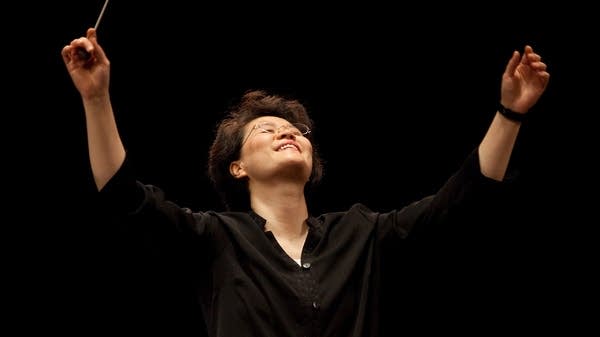Be careful, I warned them. Don't cry too hard for Clara. I'm not sure she wants your tears!
There we were crafting her story, positioning Clara Schumann as this fierce prototype, possibly even the patron saint of female classical musicians who were more than worthy of the stage, but would have to fight to get there. We lamented how critics often qualified her music as sounding like a woman wrote it. Even audiences gasped just a little louder because it was virtuoso playing … by a girl. You could almost hear us assuming that Clara was intentionally paving the way for other women to follow in her footsteps. But I was saying, not so fast.

I'm going to spill a dirty, little secret here. It's the secret of the "one and only." Clara Schumann was a "one and only" in her day. Not many women graced public stages as a solo artist as she did. Other female musicians definitely didn't have concert lines wrapped around buildings and cakes named after them. Clara was a rarity … and she knew it. And by the time she understood it, I daresay, she banked on it.
In order to stay rare, the space around you has to stay clear of others who look and move like you do. That's why I say we shouldn't cry too hard for Clara and we shouldn't assume she spent her nonpracticing hours protesting, or even dreaming, on behalf of other female performers. To do that might have meant career suicide. What if there were other little girls who were just as good? Or younger? Or more adorable? Or simply better?
And that's the dirty, little secret. As a fellow "one and only" (a black woman in classical music), you figure out at an unfortunately young age that your status as rarity marks you for all sorts of special attention, all sorts of assumptions, for better and for worse. You have to work hard not to revel in being "the only" so that you can advocate for the others that will ultimately end up proving you're not so rare after all.
At first, you're simply practicing your art. Nobody has pointed out to you that it's unexpected for a black girl to embrace Chopin so fiercely, for her to have Schubert's Unfinished Symphony blaring in her headphones. You won't know that until this happens:
"I expected you to play the Ginastera well, but I'm blown away at how sophisticated your Mozart was!"

That's what the critic said after an eclectic and wide-ranging classical recital I had given. I blinked blankly. He was truly saying my blackness made my incredible rhythm a given. But that same blackness made my delivery of the Mozart extraordinary. Somehow I wasn't supposed to be able to do that, he was saying. And since I could, I got extra points, just as Clara got for doing what she did so instinctively, but most impressively, as a girl.
The points kept coming. For winning a Beethoven competition, I was a "credit to my race," a raving audience member wanted me to know. Just for playing the finale of Beethoven's Moonlight Sonata as a young, black female, he was saying I was practically a savior. As I got older, I had to be careful because one can start to believe it, that your rare status is one worth protecting.
So you can imagine it's a shock when you, as the big fish, leave your little pond and run smack dab into quite a few, in fact, lots of "one and only's." Many of them are even better than you, possibly even credits to the entire human race! If you're not careful, you'll panic at the competition, instead of revel in the camaraderie. And that will become your dirty, little secret. You'll begin to wish it really was only you.
But if you're smart, you'll get excited that finally you're free to have your art judged on the music you're making and not the rarity that is the fact the you're the one making it. Clara experienced that in the end of our episode especially, and I get to experience it now every time I'm on stage.
In Detroit, at the Sphinx Organization's annual SphinxCon, a gathering devoted to strategizing and celebrating diversity in classical music, specifically in U.S. orchestras, I had a once-in-a-lifetime opportunity as the keynote speaker in 2019. For years during my early career, I performed constantly in halls where I could count on a few fingers people who looked like me, and most of the time they were not sharing the stage. But at SphinxCon, I performed for the first time in my life for a room full of "one and only's," a room full of musicians of color who shared my story almost verbatim. They were often big fish, coming from little ponds, tirelessly told their blackness made them special in this world of white music. For the first time, I wouldn't have to explain the stories behind my rap 'Black Beethoven' because they would get it as soon as they heard it, every last line. I smiled at them, they beamed back at me, as if to say, we feel you and we're so glad you're here!
In that moment, I had never been happier not to have been the "one and only."
Nicknamed "Classical Music's No. 1 Maverick," Jade Simmons is the host of the Decomposed podcast. She also is a concert artist, bestselling author and a passionate storyteller with a strong understanding of classical music's roots.
Love the music?
Show your support by making a gift to YourClassical.
Each day, we’re here for you with thoughtful streams that set the tone for your day – not to mention the stories and programs that inspire you to new discovery and help you explore the music you love.
YourClassical is available for free, because we are listener-supported public media. Take a moment to make your gift today.










